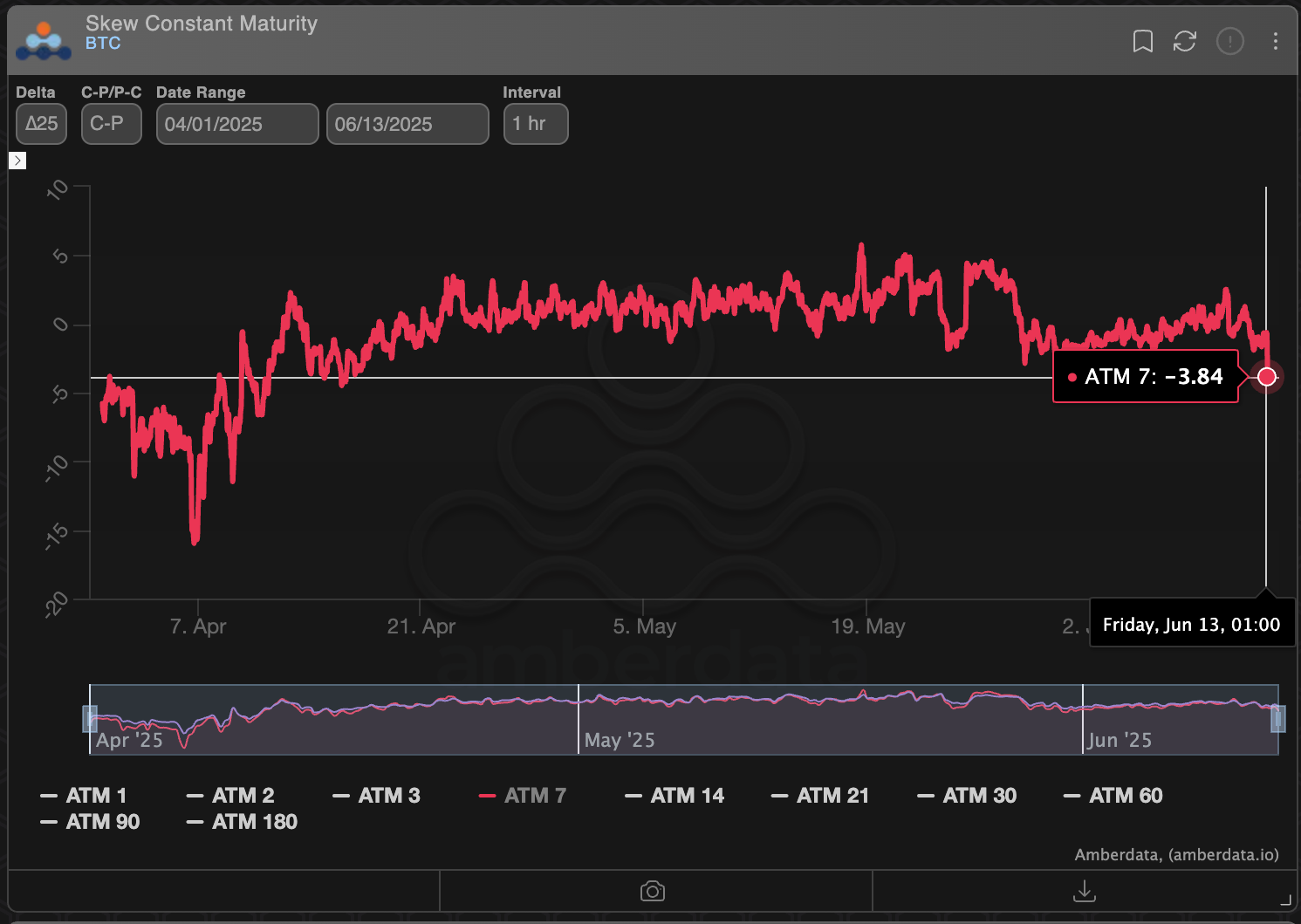Bitcoin’s BTC hort-term options skew crashed during the early Asian hours as traders sought downside protection amid escalating tensions in the Middle East, which triggered a sharp rise in oil prices
The seven-day skew, which measures the relative richness of Deribit-listed BTC calls to puts, slid to -3.84%, the lowest since April 16, according to data source Amberdata. In other words, put options offering downside protection became the most expensive relative to calls in three months. The demand for put also pushed the 30-day and 60-day skews into the negative territory.
Traders typically buy put options when seeking to hedge their long positions in the spot or futures market, or to profit from an expected price decline.
Bitcoin’s price fell to its 50-day simple moving average (SMA) at $103,150, extending 24-hour losses to 4.59%, according to CoinDesk data. Prices briefly topped the $110,000 mark early this week. The bulls might be hoping for the 50-day SMA to hold, as a potential decline below it could entice more sellers, as observed after the support broke down in February.

The per-barrel price of WTI crude surged over 6% to $74.30 per barrel, reaching the highest since Feb 3, and extending the weekly gain to 13%, according to data source TradingView. The move happened after Israel conducted airstrikes on Iran, supposedly drawing retaliatory missile action from Tehran.
Inflationary impulse
Sudden oil price spikes tend to generate an inflationary impulse worldwide and the latest one could do so while President Donald Trump’s trade war threatens to upend the economy and inject inflation, particularly in net-importer countries.
All of this could dent expectations for Fed rate cuts, adding to downside volatility in stocks and cryptocurrencies. As of writing, futures tied to the S&P 500 traded 1.5% lower on the day.

